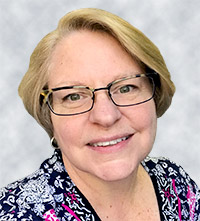Help! My Students Are Struggling With Multisyllabic Words
Knowledge of syllables is a foundational aspect of learning to read. That's because children don't memorize every word. Instead, they use a process called decoding to break apart words into individual syllables, which are easier chunks to sound out than whole words.
Successful readers start by working with one- or two-syllable words but progress to multisyllabic words by the third or fourth grade. Unfortunately, as words get more complex, some students struggle to keep up and fall below grade level in reading.
Wendy S. Farone, Ph.D, a former teacher, tutor, and reading specialist who currently serves as the Western Pennsylvania state lead in literacy, asks an important question: "Throughout the years, much attention has been given to K–2 reading instruction and rightly so. However, what happens when the students get bigger and the words they have to read get bigger and more unique?"
How can educators effectively teach students to manage multisyllabic words?
What Are Multisyllabic Words?
Multisyllabic words are words containing more than one syllable. For example:
- Two-syllable words include words like catfish, index, and vanish.
- Three-syllable words include hesitant, discontent, and astonish.
- Some four-syllable words are unexpected, inconsistent, and accomplishment.
A struggle with multisyllabic words becomes a struggle with reading comprehension. As Dr. Anita Archer states, “There is no comprehension strategy powerful enough to compensate for the fact that you can’t read the words.” (Archer, 2011).
Poor readers struggling to comprehend assignments may become disengaged, frustrated, and poorly behaved due to their persistent reading difficulties. If unaddressed, students who struggle to decode multisyllabic words fall behind in more areas than just reading, since they'll be unable to read the words in their other academic lessons.
When Should Children Start Learning Multisyllabic Words?
Dr. Farone says, "We are not done teaching about decoding and encoding (spelling) after grade 2." While many students at the second-grade reading level have become proficient in the foundational reading skills of decoding, blending, and encoding, as words become more difficult, more practice is consistently needed.
Dr. Farone adds, "It is imperative that we continue teaching students about decoding or word study into the middle and upper grades. To do so means purposeful, systematic, and explicit instruction in syllable types, basic procedures for reading big words, and syllabification for spelling strategies. With these tools for approaching big words, big kids will be able to access the printed word and, in turn, comprehend what is being read."
Activities To Help Students Practice Decoding Multisyllabic Words
Elementary educators hoping to help students with foundational literacy skills can take advantage of professional development resources, including LETRS®, a flexible literacy learning suite for teachers and administrators. For additional educator support, see Dr. Farone's webinar on the topic.
In addition, educators can try the following activities to support students' daily syllable practice.
- Musical syllables—Give each student a simple instrument, like a shaker egg or a drum. Slowly sound out words from 1–4 syllables, and have students tap or shake along with each syllable.
- Splicing syllables—Roll out a small section of playdough and write a multisyllabic word in it using a toothpick. Have students break apart the playdough into individual syllables.
- Big bowl of syllables—Write down words of varying syllables on small pieces of paper and put them in a bowl. Have students pull words out one by one and see who can identify the number of syllables first.
- Syllable towers—Give students access to stacking blocks. Write down a multisyllable word, and slowly sound it out so students can see and hear it. Have students add one block to a block tower for each syllable in the word.
Continue To Develop Foundational Reading Skills For Student Success
Multisyllabic words can be tough to master, even for advanced readers. Continue to hone in on essential reading skills like decoding and blending to ensure students can comprehend even the most difficult words.


